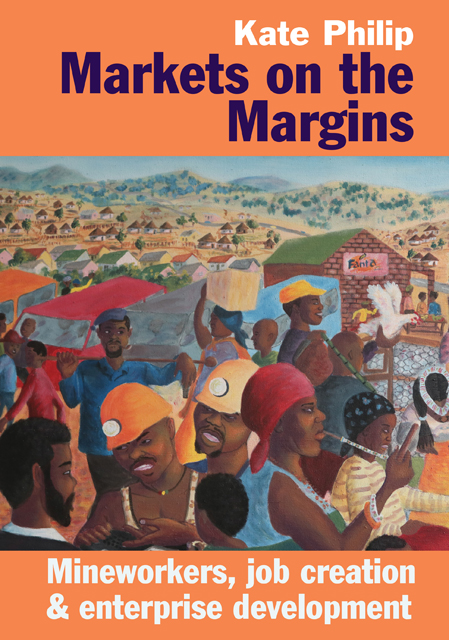Book contents
- Frontmatter
- Contents
- List of Illustrations
- Preface
- Acknowledgements
- Abbreviations
- 1 Introduction: Setting the scene
- 2 The 1987 Mineworkers Strike
- 3 Conflict in the Transkei
- 4 Power Struggles in Lesotho
- 5 Co-ops Capture the Imagination
- 6 The NUM Co-op Programme
- 7 Challenges of Democratic Ownership & Control
- 8 Rethinking Degeneration in Co-op Theory
- 9 The Mineworkers Development Agency’s Development Centre Strategy
- 10 Small Enterprise: In the shadow of the core economy
- 11 A New Enterprise Development Paradigm
- 12 Market Development – or a New ‘Anti-Politics Machine’?
- 13 Breaking into Higher-value Markets in the Craft Sector
- 14 Marula: Product innovation & value chains
- 15 Implications for Enterprise Development Strategy
- 16 If Markets are Social Constructs, how Might we Construct them Differently?
- Select Bibliography
- Index
5 - Co-ops Capture the Imagination
Published online by Cambridge University Press: 20 January 2023
- Frontmatter
- Contents
- List of Illustrations
- Preface
- Acknowledgements
- Abbreviations
- 1 Introduction: Setting the scene
- 2 The 1987 Mineworkers Strike
- 3 Conflict in the Transkei
- 4 Power Struggles in Lesotho
- 5 Co-ops Capture the Imagination
- 6 The NUM Co-op Programme
- 7 Challenges of Democratic Ownership & Control
- 8 Rethinking Degeneration in Co-op Theory
- 9 The Mineworkers Development Agency’s Development Centre Strategy
- 10 Small Enterprise: In the shadow of the core economy
- 11 A New Enterprise Development Paradigm
- 12 Market Development – or a New ‘Anti-Politics Machine’?
- 13 Breaking into Higher-value Markets in the Craft Sector
- 14 Marula: Product innovation & value chains
- 15 Implications for Enterprise Development Strategy
- 16 If Markets are Social Constructs, how Might we Construct them Differently?
- Select Bibliography
- Index
Summary
When NUM started its co-op programme, the idea of co-ops as an alternative to traditional forms of ownership and to the organisation of work was starting to capture the imagination within the democratic movement in South Africa. Within the Congress of South African Trade Unions (COSATU), interest in co-ops was given impetus during the 1980s by the establishment of the Sarmcol Workers Co-operative (SAWCO) in Howick, near Pietermaritzburg. SAWCO was initiated by the National Union of Metalworkers of South Africa (NUMSA) and was intended to provide income support and solidarity to workers who had been dismissed in a bruising battle with metal-industry employer Sarmcol.
Co-ops were not new on the South African landscape. A network of credit unions existed, along with scattered community-based initiatives. Most visible, however, were the large agricultural marketing and supply co-ops set up by white farmers. These were constituted as racially exclusive entities and represented a powerful conservative farming lobby in South African politics, through which significant subsidies and support to farmers were channelled.
The emergent co-op movement was at pains to differentiate itself from this tainted tradition, looking to the rest of the world for more democratic and socialist examples on which to build. Close to home, the emergence of co-op movements in Zimbabwe and in other countries across the region provided inspiration, as they grappled with postliberation challenges, providing a window into future possibilities for South Africa that, in the 1980s, still seemed very remote.
Globally, the co-op tradition includes a diverse and dynamic range of forms of co-op. The main categories include user co-ops, such as consumer co-ops, credit unions, child-care and utility co-ops, where the members are users of the services of the co-op; producer co-ops, where the members are self-employed producers such as farmers, fishermen or taxi drivers, who come together to create economies of scale in relation to inputs, processing activities and/or marketing; social or community co-ops, often multi-stakeholder in form, bringing members together around a social goal; and worker co-ops, whose main purpose is job creation and are owned and controlled by workers in the enterprise (Roelants et al. 2014, p. 17; Zamagni 2012, p. 22).
- Type
- Chapter
- Information
- Markets on the MarginsMineworkers, Job Creation and Enterprise Development, pp. 45 - 49Publisher: Boydell & BrewerPrint publication year: 2018

